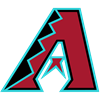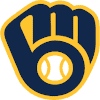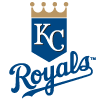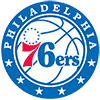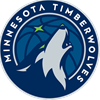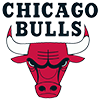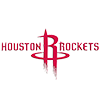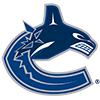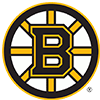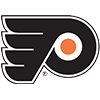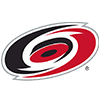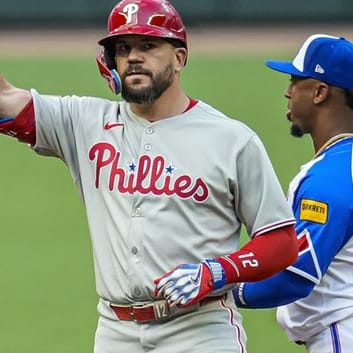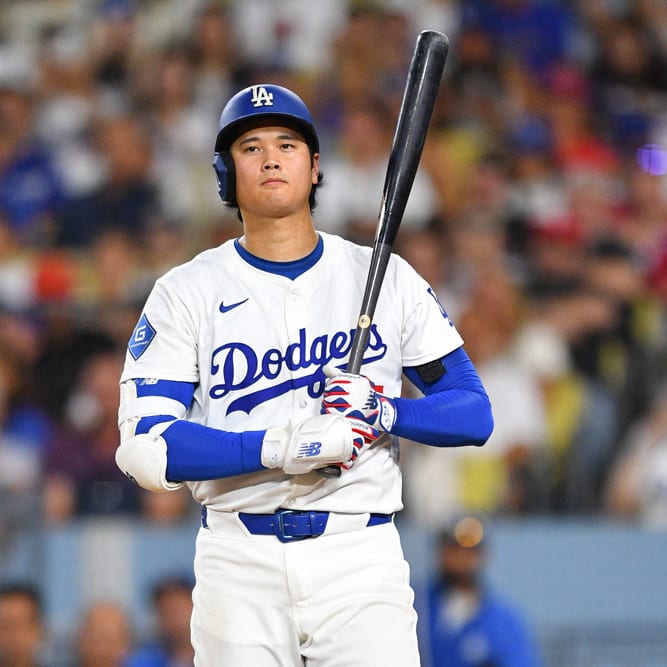It's a good exercise before the start of each season not only to make predictions on where you think the teams will finish, but also test those against the conventional wisdom expressed through money wagered in sportsbooks.
Over the last 15 years, I've come out ahead. My overall record is 39 for 64 (with one push) for 61.0 percent. My best bet each season is 15-10 (I had multiple biggest bets some years). I'm a little better on bets of $100 or more (I vary my bet size to emphasize how strongly I feel about the pick) where I'm 12-7. Although I lost my best bet and $100 bet last year, the over on Tampa Bay (the over was 89 games and they won just 77. Oops.). I'm most impressive on a weighted or cash basis, where I've been correct 66.7 percent of the time ($2,750 in winning bets, $1375 in losers -- not factoring in the vig). Last year I was 3-2 on bets.
I grabbed these odds on March 31.
When I look at a upcoming baseball season, there are eight methods I use to judge which teams might be a good bet: Three are statistical, four are observations I've had watching the bookies set season-long lines for MLB
It's a good exercise before the start of each season not only to make predictions on where you think the teams will finish, but also test those against the conventional wisdom expressed through money wagered in sportsbooks.
Over the last 15 years, I've come out ahead. My overall record is 39 for 64 (with one push) for 61.0 percent. My best bet each season is 15-10 (I had multiple biggest bets some years). I'm a little better on bets of $100 or more (I vary my bet size to emphasize how strongly I feel about the pick) where I'm 12-7. Although I lost my best bet and $100 bet last year, the over on Tampa Bay (the over was 89 games and they won just 77. Oops.). I'm most impressive on a weighted or cash basis, where I've been correct 66.7 percent of the time ($2,750 in winning bets, $1375 in losers -- not factoring in the vig). Last year I was 3-2 on bets.
I grabbed these odds on March 31.
When I look at a upcoming baseball season, there are eight methods I use to judge which teams might be a good bet: Three are statistical, four are observations I've had watching the bookies set season-long lines for MLB and other sports and lately I've thrown in a wild-card pick with no particular theoretical basis. Here's the breakdown on these theories and the teams I decided to actually wager on.
The Johnson Effect
The Johnson Effect argues that a team that scores more runs or allows fewer runs than most statistical formulas would suggest, is bound to regress the next season. For example, if one team scores more runs than sabrmetrical formulas such as Runs Created or OPS might suggest, then it will score less the next season. The theory works based on the fact that sometimes a team has more success than it should just because of pure luck. A bad bounce here, a fluke play here -- they can add up in one season and make a team look more powerful than it should be.
My favorite type of statistic for this analysis is a tool called the Pythagorean Theory. You probably learned the Pythagorean theory in trigonometry, but in baseball it means that the ratio of a team's wins and losses will be similar to the relationship between the square of its runs scored and the square of its runs allowed. If the runs a team scores and gives up in any given season don't translate into the expected win total from the Pythagorean Theory, that means something odd took place that should turn around next season.
Using the Johnson Effect and applying the Pythagorean Theory, who looks like they'll rebound in 2015? Here are the top teams that should have seen more or less wins based on their 2014 runs allowed/created than they actually tallied:
Oakland Athletics -11
Colorado Rockies -9
Minnesota Twins -5
Kansas City Royals +5
New York Yankees +5
St. Louis Cardinals +7
I usually look for teams that have a double-digit disparity in their Pythagorean wins and their actual wins. Oakland is just the seventh team since 2001 with a disparity (positive or negative) of more than 10 games. The problem with the A's is that they made so many moves in the offseason (16 new faces on their 40-man roster), that the bad luck the 2014 team had may not correlate to the new players on the field. By my count, only four of the starting nine players in the lineup were with Oakland last season (which is hard to calculate since they don't have a set starting lineup). Still, the disparity is so large it's worth a bet. But I have another reason to bet on the A's, so I'll break down the full bet later.
The Plexiglas Principle
This theory says that any team that improves dramatically in one season is likely to decline the next season.
What teams made such dramatic moves from 2013 to 2014?
Los Angeles Angels +20
Houston Astros +19
Seattle Mariners +16
Florida Marlins +15
The Angels and Astros took historically big leaps last season. Only 59 teams since 1970 have improved by 19 or more games. On average those teams decline by 7.9 wins the next year. Teams that win 20 or more games decline even more, an average of 8.75 wins the next year.
The Astros are a team on the rise as last season they finally started getting a payoff from three years of 50-win seasons that allowed them to build perhaps baseball's best top farm system with high draft picks. For 2015, the Astros are finally trying to win and not just rebuild. However, it's easy to see them taking a slight step back before they move into contention. Perhaps it all comes together and George Springer, Dallas Keuchel and Collin McHugh all take big leaps forward. Perhaps Carlos Correa,Mark Appel or any of the other top prospects contribute earlier than expected. The sportsbooks certainly think they'll keep improving as they have them moving up 5.5 games to 7.5. wins. And I'll admit their ceiling is high enough they could contend faster than expected. But history says they'll likely decline. Therefore I'll make a $25 bet the Astros win less than 75.5 games (-140).
The Angels to me were a surprise 90-plus win team last year. I look at their pitching staff and I'm not overwhelmed. The lineup after Mike Trout and Albert Pujols isn't exciting. Sure, Trout is the best player in baseball, but he was a better player in 2013 and the Angels won just 78 games. But the sportsbooks agree the team will decline with 9.5 fewer victories (to 88.5 wins). That's larger than the historical average decline for a team improving by 20 or more games. They were also a good defensive team as they were sixth in Baseball Prospectus' defensive efficiency. I'm on the fence, but three of the last four years they've won less than 88 games. My gut says take the under. Therefore I'll make a $25 bet the Angels win less than 88.5 games (-130).
The Reverse Plexiglas Principle
When a team has consistently been a winner and then experiences a sudden drop off, there is a strong likelihood that its win total will rebound. Or at least that's my theory. I haven't had a lot of success with this bet (1 for 3).
Here are the teams that declined the most in 2014:
Cincinnati Reds -14
Tampa Bay Devil Rays -15
Atlanta Braves -17
Arizona Diamondbacks -17
Texas Rangers -24
Boston Red Sox -26
The Rangers and Red Sox both fit the mold here. The Red Sox won 97 games in 2013 while winning the World Series. A lot went wrong for them last year. But there are a lot of reasons to think they'll bounce back, not the least being that they have at $186 million the third highest payroll. Some of the free agent acquisitions -- Pablo Sandoval, Hanley Ramirez, Justin Masterson and Cuban Rusney Castillo (OK, he signed midseason last year) -- have to help. Their rotation isn't great, but the lineup may lead baseball in runs scored. They have a lot of depth in the minors. And they have the financial power to trade for assets midseason (Cole Hamels?). Bottom line is they will be better than a 71-win team. Unfortunately the sportsbooks think so as well and have them improving 15 games to 86.5 games. Still, since 2002 only the 2012 and 2014 seasons have seen Boston win fewer than 86 games. When they're good, they at least win 86 or more. As a result I'll bet $25 the Red Sox win over 86.5 games (-105).
The Texas Rangers had a historically bad run of injuries last season with nearly 2,300 days lost to the DL. Players that ended the year on the 60-day DL included Mitch Moreland, Jurickson Profar, Matt Harrison, Martin Perez, Prince Fielder, Alexi Ogando, Shin-Soo Choo, Yu Darvish and Tanner Scheppers. Just by mildly better health the Rangers should bounce back from 67 wins. However, that run of bad luck continued into spring. Top prospect Jurickson Profar was lost for the season due to a shoulder injury. And rotation ace Yu Darvish was lost to Tommy John surgery. At the start of spring training, taking the over on the Rangers' win total seemed a no-brainer. But the loss of Darvish is big. Still, the sportsbooks only think they'll improve 8.5 games to 76.5 wins. This was a championship caliber roster that many picked to win the World Series last spring. I'll bet $25 the Rangers win over 76.5 games (+110).
The Bottom Feeder Bet
This is totally from a non-scientific study of watching the bookies set the lines on expected wins over the years. People tend to care less about the bad teams in any sport, so the line is set a bit lower to entice folks to bet on these doormats. I've won 6 of 8 bets since 2001 with this theory. Let's look at this year's candidates.
Minnesota Twins 72.5
Colorado Rockies 71.5
Arizona Diamondbacks 71.5
Philadelphia Phillies 67.5
This is sad sack group as the Rockies, Diamondbacks and Phillies are seemingly lost organizations. Perhaps the Phillies will hit rock bottom this year and move forward. But the organization waited so long to trade its aging stars (and missed chances to get anything in return for Cliff Lee and Roy Halladay) that it has a long way to climb back. The Phillies may be to the 2010s what the Astros were to the late 2000s. The Rockies just appear to be a lost organization and really need to trade Carlos Gonzalez and Troy Tulowitzki to get value in a rebuild before it's too late. But that doesn't appear to be on the horizon. The Diamondbacks with new GM Dave Stewart and his anti-advanced analytics mindset don't inspire much confidence.
Only the Twins of this group appear headed upward. Minnesota has a farm system that's among the best in baseball (No. 2 from Baseball Prospectus and No. 2 from ESPN). And some of the impact players from that system may arrive this year (most importantly Miguel Sano and Byron Buxton). Last year I won the over bet on the Astros by taking them maybe a year early. The Twins lineup could look very different in the second half and they may finally get some high-velocity arms in the rotation (Alex Meyer and Jose Berrios). I was all set to take the over, but the team's management has been underwhelming this spring. New manager Paul Molitor and Twins GM Terry Ryan have decided to keep mediocre veterans on the roster over higher-upside prospects. Plus, despite spending money on free-agent pitching, they don't realize outfield defense is a major problem (an outfield with Oswaldo Arcia and Torii Hunter and no premium center fielder will be brutal). In short, I'm not sure the Twins will be aggressive enough in getting their youth to the big leagues this season. I could see a case for the over on 72. 5 wins, but they may be the play for this group next year.
The Book's Biggest Movers
Boston Red Sox +15
Chicago Cubs +9.5
Texas Rangers +9.5
Los Angeles Angels -9.5
Baltimore Orioles -13.5
The Cubs have perhaps the best young talent in baseball and financial power to match, which brought in Jon Lester ($155 million deal) and likely more free agents next year. After improving seven games last year, the Cubs, according to the sportsbooks, are expected to improve 9.5 more games this year to 82.5 wins. I'd bet against them making the playoffs, but they have a wide range of outcomes and betting on a losing record doesn't feel like good value.
The Orioles declining by 13.5 games seems odd. Baltimore may have played above its head by winning 96 games thanks to a fluky MLB leading home run total (MLB leading 13.2-percent home run to fly ball rate), but it also did so without arguably its three best players at full speed (Matt Wieters, Manny Machado and Chris Davis). All three should be back this season, though it's not clear if Wieters can play catcher, which would undercut his value. The Orioles have some pitching prospects who could make an impact (Kevin Gausman, Dylan Bundy). Plus they have great defense which a healthy Machado and Wieters would help (4th in defensive efficiency). And more than anything they have manager Buck Showalter who continually gets his roster to overachieve. Therefore, I'll bet $75 the Orioles win more than $82.5 games this year (-125).
The Book's Non Movers
Tampa Bay Rays +1.5
Cincinnati Reds +1.5
Seattle Mariners -0.5
Toronto Blue Jays -0.5
Cleveland Indians -0.5
Los Angeles Dodgers -1.5
St. Louis Cardinals -1.5
A few teams stand out among this group as many have tabbed the Indians and Mariners as playoff teams. But both could make the playoffs again with last year's win totals (85 for Cleveland, 87 for Seattle). I don't see a ton of value going higher.
The Reds and Rays stand out to me. Cincinnati is a team that almost everyone I talk to says is going to decline. Sure, Joey Votto should bounce back from an injury-plagued year. But the Matt Latos trade screamed rebuilding. Homer Bailey is already hurt this spring and the rest of the rotation after Johnny Cueto is retread veterans or unproven. The Reds appear stuck in the middle where they are too good to totally rebuild but not strong enough to go all out for a playoff spot. There's a lot of downside risk if the team heads south and the rebuilding begins. I'll bet $25 the Reds don't win 77.5 games (-125).
The Rays lost their GM in the offseason (Andrew Friedman went to the Dodgers) but much of the analytical-minded front office remains. The Rays also had a bad luck season with just three regulars, Evan Longoria, James Loney and Ben Zobrist, appearing in more than 140 games and only two pitchers, Chris Archer and Jake Odorizzi, reaching the 30-start threshold. There's enough talent in the rotation that if it stays healthy, they should be a .500 team again. The lineup isn't impressive but Tampa Bay hadn't won fewer than 84 games since 2007 before last year. An improvement of more than 1.5 games seems too little. I'll wager $50 the Rays win more than 78.5 games (-115).
The Billy Beane Theory
The sportsbooks consistently underrates Oakland GM Billy Beane. He's beat their expected win total at a 78.5 percent (11-for-14) clip since 2001. Perhaps the sportsbooks were slow to catch on to his use of advanced stats. Perhaps few bettors wager on the A's and keep the totals down. Either way, it's hard not to just put faith in Beane and the trend. And this offseason it's hard to figure out what Beane was doing with his almost full scale turnover of his roster. But given that his team massively underperformed last year in terms of run differential translating into wins; and given that he likely traded away some of that roster for near equal talent; and given he still has good depth on the pitching staff -– it's likely many people are underestimating the A's again. Therefore I'll wager $100 the A's win over 81.5 games (-125).
Wild Card
I've done a wild card three of the last five years based on hunches or other statistical trends I saw. I won two bets and lost a bet. But nothing stands out this year.
I've made a record eight bets this year, which may not be a good thing. Typically I do better when I have fewer bets I feel strongly about. I'm throwing caution to the wind and rolling with eight wagers. So to recap, here are my bets for 2015.
| Houston Astros | $25 win less than 75.5 games | Plexiglas Principle |
| Los Angels Angels | $25 win less than 88.5 games | Plexiglas Principle |
| Texas Rangers | $25 win over than 76.5 games | Reverse Plexiglas Principle |
| Boston Red Sox | $25 win over than 86.5 games | Reverse Plexiglas Principle |
| Baltimore Orioles | $75 win over than 82.5 games | Book's Biggest Movers |
| Cincinnati Reds | $25 win less than 77.5 games | Book's Non Movers |
| Tampa Bay Rays | $50 win more than 78.5 games | Book's Non Movers |
| Oakland A's | $100 win more than 81.5 games | Billy Beane Theory |
One note: My bets/track record doesn't try to account for the variations in extra juice you need to pay. Most lines are -110, meaning the sportsbook takes about five percent on each bet. The "Vig" tends to be higher on these bets than for single games. Sometimes the vig can vary widely, such as the 2015 Houston Astros under of 75.5 wins at -140 (the under is +105). I also put the vig next to each bet above. It's another method for the bookmakers to alter how the money is coming in on each side so it gets to their comfort level. Or it's a way to change the odds without moving the win total.
If you are making a lot of bets, this is a serious factor in the math. But I don't bother to take that into account because I'm more focused on the overall wins number for a team perspective. Plus, I forget to keep track of the Vig in early years. I vary the dollar amounts below as a way to show how confident I am in the bet (the $300 bet on the 2004 Royals is my all-time high), so there are some holes in the math if you added in all the varying vigs.
And why should you care what I think? I've made money nine of the past 14 years (with one push). Here's the breakdown:
| Year | W/L | Team | Bet | Theory |
| 2014 | Lost | Cleveland Indians | $25 win less than 82 games | Plexiglas Principle |
| 2014 | Won | Houston Astros | $25 more than 62.5 games | Bottom Feeder |
| 2014 | Won | Philadelphia Phillies | $50 under on 74.5 games | Book Non Mover |
| 2014 | Won | Oakland A's | $25 over on 86.5 games | Billy Beane Theory |
| 2014 | Lost | Tampa Bay Rays | $100 over on 89 games | Billy Beane Theory |
| 2013 | Won | Toronto Blue Jays | $50 under on 89 games | Book Mover |
| 2013 | Won | Oakland A's | $25 over on 84.5 games | Billy Beane Theory |
| 2013 | Won | Tampa Bay Rays | $50 over on 86.5 games | Billy Beane Theory |
| 2013 | Lost | Kansas City Royals | $50 under on 78.5 games | Billy Beane Theory |
| 2013 | Won | Baltimore Orioles | $25 over on 78.5 games | Wildcard |
| 2012 | Won | Arizona Diamondbacks | $200 under on 86 games | Plexiglas Principle |
| 2012 | Lost | Minnesota Twins | $100 over on 72.5 games | Reverse Plexiglas Principle |
| 2011 | Lost | Kansas City | $100 under on 68 games | Book Non Mover |
| 2011 | Won | Houston Astros | $50 under on 72 games | Johnson Effect |
| 2011 | Won | Milwaukee Brewers | $25 over on 86.5 games | Book Mover |
| 2011 | Lost | Los Angeles Angels of Anaheim | $50 under on 82.5 games | Wild Card |
| 2010 | Lost | Houston Astros | $150 under on 75.5 games | Johnson Effect & Book Non Mover |
| 2010 | Won | Minnesota Twins | $100 over on 82.5 games | Wildcard |
| 2010 | Won | Washington Nationals | $50 under on 72 games | Book Mover |
| 2009 | Lost | Los Angeles Angels | $50 under on 88.5 wins | Johnson Effect & Plexiglas Principle |
| 2009 | Won | Detroit Tigers | $50 over on 81.5 wins | Reverse Plexiglas |
| 2009 | Lost | Baltimore Orioles | $50 over on 72.5 wins | Bottom Feeder |
| 2009 | Lost | Kansas City Royals | $25 over on 76.5 wins | Book Non Mover |
| 2009 | Lost | Philadelphia Phillies | $50 under on 88.5 wins | Book Non Mover |
| 2009 | Lost | Oakland A's | $25 over on 82.5 wins | Billy Beane Theory |
| 2008 | Won | Seattle Mariners | $200 under on 84 wins | Johnson Effect |
| 2008 | Lost | Chicago Cubs | $50 under on 87.5 wins | Plexiglas Principle |
| 2008 | Won | Oakland A's | $50 over on 73.5 wins | Reverse Plexiglas Principle |
| 2008 | Push | San Francisco | $50 under on 72 wins | Book Non Mover |
| 2007 | Won | Cleveland Indians | $50 over on 85.5 wins | Johnson Effect |
| 2007 | Lost | Chicago Cubs | $50 under on 83.5 wins | Book Mover |
| 2007 | Lost | Oakland A's | $50 over on 85.5 wins | Book Mover |
| 2007 | Lost | Minnesota Twins | $100 over on 84 wins | Book Mover |
| 2007 | Won | Arizona Diamondbacks | $100 over on 78.5 wins | Book Non Mover |
| 2006 | Won | Chicago White Sox | $100 under on 92 wins | Johnson Effect & Plexiglas Principle |
| 2006 | Lost | Arizona Diamondbacks | $25 under on 73 wins | Johnson Effect & Plexiglas Principle |
| 2006 | Lost | Tampa Bay Devil Rays | $100 over on 68 wins | Bottom Feeder |
| 2006 | Lost | Milwaukee Brewers | $50 over on 81 wins | Book Non Mover |
| 2006 | Won | Minnesota Twins | $50 over on 83 wins | Book Non Mover |
| 2005 | Won | New York Yankees | $150 under on 102 wins | Johnson Effect |
| 2005 | Won | Milwaukee Brewers | $50 over on 69.5 wins | Bottom Feeder |
| 2005 | Won | San Diego Padres | $25 under on 86.5 wins | Plexiglas Principle |
| 2005 | Lost | Minnesota Twins | $25 over on 89.5 wins | Book Non Mover |
| 2004 | Won | Kansas City Royals | $300 under on 81 wins | Plexiglas Principle |
| 2004 | Won | Houston Astros | $50 over on 91 wins | Johnson Effect |
| 2004 | Lost | Detroit Tigers | $100 under on 66.5 wins | Book Mover |
| 2004 | Won | San Francisco Giants | $50 over on 85 wins | Book Mover |
| 2004 | Won | Florida Marlins | $50 over on 83 wins | Book Mover |
| 2003 | Won | Anaheim Angels | $100 under on 91 wins | Plexiglas Principle |
| 2003 | Won | Oakland A's | $50 over on 93.5 wins | Book Mover |
| 2003 | Won | New York Mets | $50 under on 86 wins | Book Mover |
| 2003 | Won | Toronto Blue Jays | $50 over on 79 wins | Book Non Mover |
| 2003 | Won | Boston Red Sox | $50 over on 91 wins | Johnson Effect |
| 2002 | Won | Oakland A's | $200 over on 90.5 wins | Book Mover |
| 2002 | Won | Philadelphia Phillies | $100 under on 82.5 wins | Plexiglas Principle |
| 2002 | Won | Pittsburgh Pirates | $50 over on 68 wins | Bottom Feeder |
| 2002 | Lost | Seattle Mariners | $50 over on 94 wins | Reverse Plexiglas Principle |
| 2002 | Lost | Colorado Rockies | $50 over on 77 wins | Johnson Effect |
| 2002 | Lost | New York Yankees | $50 under on 99 wins | Reverse Bottom Feeder |
| 2001 | Lost | St. Louis Cardinals | $100 under on 89.5 wins | Plexiglas Principle |
| 2001 | Won | Chicago White Sox | $100 under on 88 wins | Plexiglas Principle |
| 2001 | Won | Houston Astros | $100 over on 82.5 wins | Johnson Effect & Plexiglas Principle |
| 2001 | Won | Philadelphia Phillies | $25 over on 74.5 wins | Bottom Feeder & Johnson Effect |
| 2001 | Won | Minnesota Twins | $25 over on 73 wins | Bottom Feeder |
| 2000 | Won | Arizona Diamondbacks | $100 under on 93 wins | Plexiglas Principle |
| 2000 | Won | Minnesota Twins | $100 over on 64 wins | Bottom Feeder |












